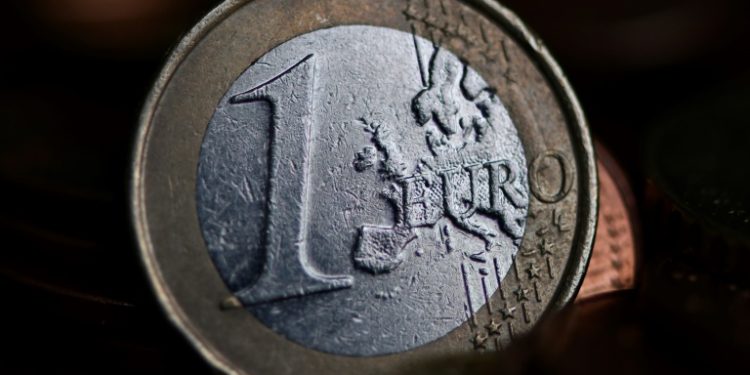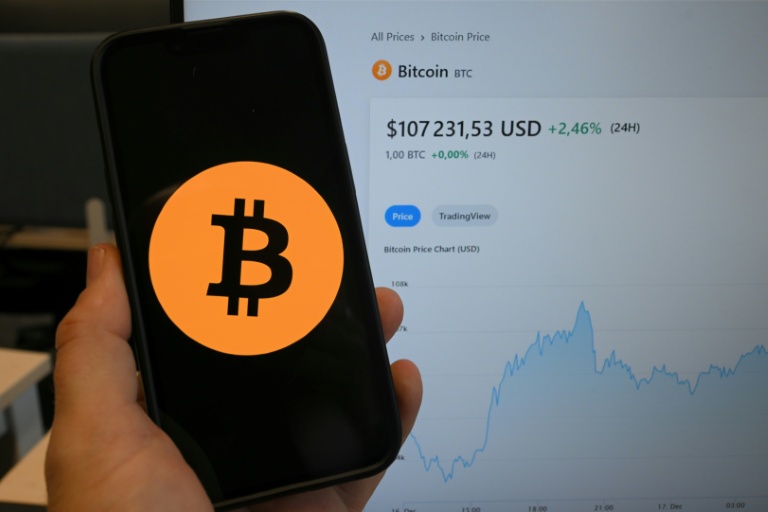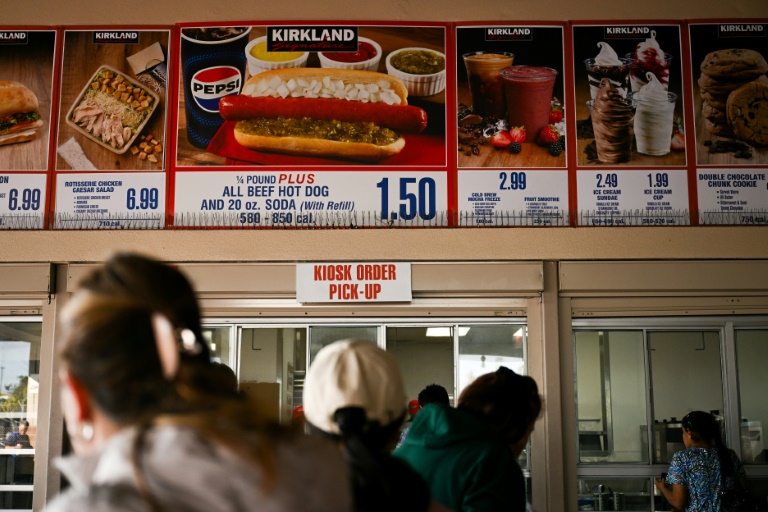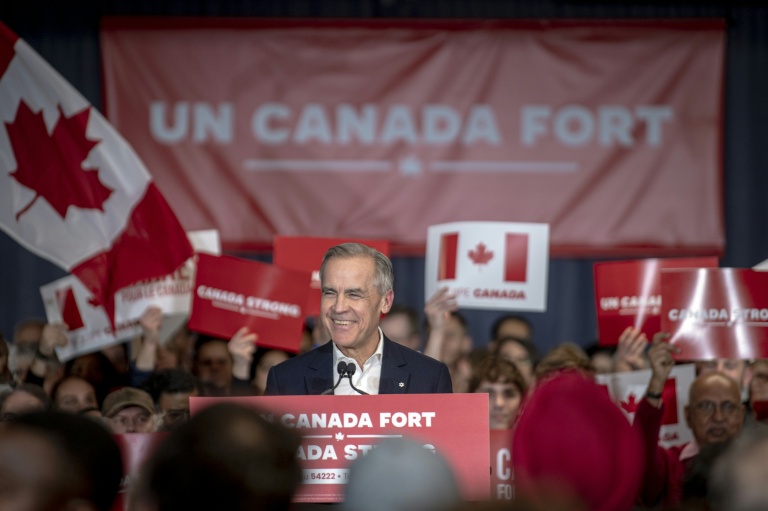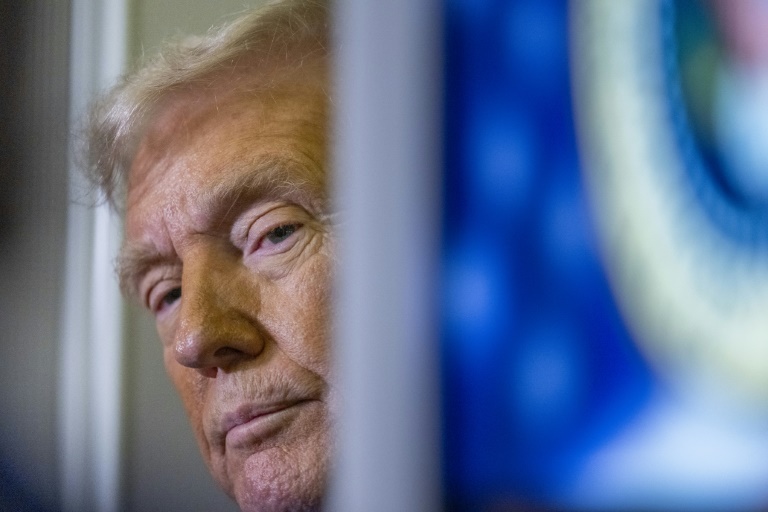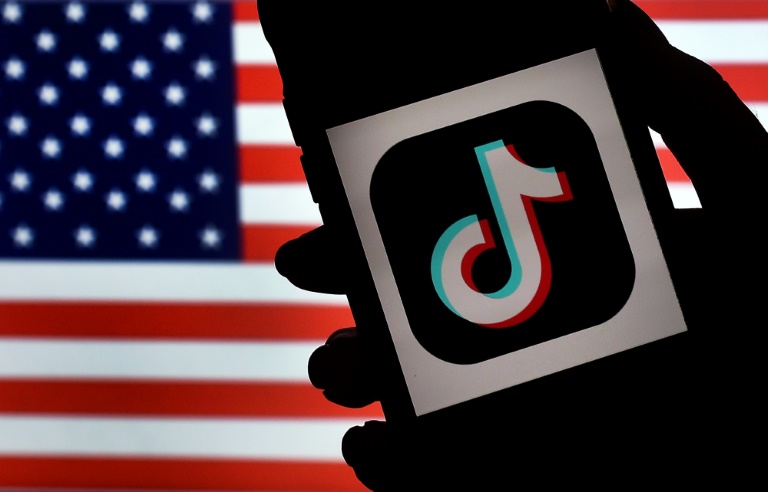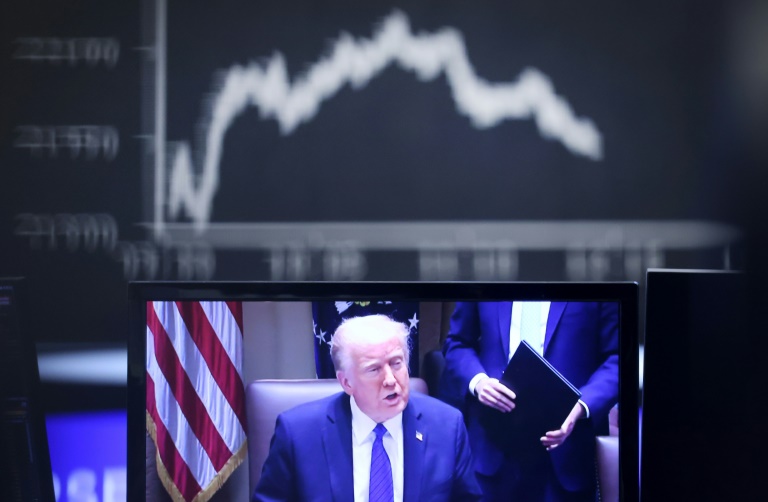London (AFP) – The euro recoiled Monday after a far-right surge in weekend EU polls sparked a general election in France, although analysts believe the single currency will remain resilient.
The shared eurozone unit was down 0.3 percent at $1.0736 around 1415 GMT, while the Paris CAC 40 stocks index slumped 1.9 percent in shock over President Emmanuel Macron’s election call.
Investors fretted over the region’s political “shift to the Far Right”, as well as the “surprise factor” of a snap general election in France, according to XTB analyst Kathleen Brooks.
Macron announced Sunday that he was dissolving the National Assembly, or French Parliament’s lower house, after news that far-right parties including National Rally (NR) took almost 40 percent of the French vote.
NR is led by 28-year-old leader Jordan Bardella, whose mentor is Marine Le Pen — runner-up in the last two presidential elections.
France will vote for a new National Assembly on June 30 with a second round scheduled on July 7, two years after Macron failed to clinch an absolute majority.
– Economic uncertainty –
The euro took a hit as investors fretted that political turmoil could hurt Macron’s agenda in in France, which was a key founding member of the eurozone.
“The prospect of a parliament controlled by Le Pen and Bardella with Macron as president, could thwart Macron’s plans for much-needed economic reforms in France that could have eased concerns about…debt,” Brooks told AFP.
Those concerns were brought into sharp focus after Standard and Poor’s recently downgraded France’s long-term sovereign debt rating.
Added to the mix, the July election could deliver a far-right prime minister.
“The likelihood (is) that parliamentary elections in France will result in a PM from another party,” said Rabobank analyst Jane Foley.
“This would change the direction of French politics including the agenda with respect to fiscal policy and potentially for issues such as EU enlargement.”
– Euroscepticism –
The increasing popularity of far-right parties has also stoked concerns over rising euroscepticism in the continent.
Going forward, commentators warn that could further weigh on the euro, which was created in 1999 as a key means of bringing the continent closer together.
“The euro was created as a product of the European unification process. And it is simply inconceivable without European unification,” said Commerzbank analyst Ulrich Leuchtmann.
“It should be obvious that this does not make the euro any more attractive than national currencies such as the US dollar and pound sterling.”
Kit Juckes, analyst at Societe Generale said he did not think the European single currency would fall back below parity “if Macron’s gamble fails to pay off”.
“I can imagine…the euro falling, but I suspect it would be reasonably short-lived,” he predicted.
© 2024 AFP

